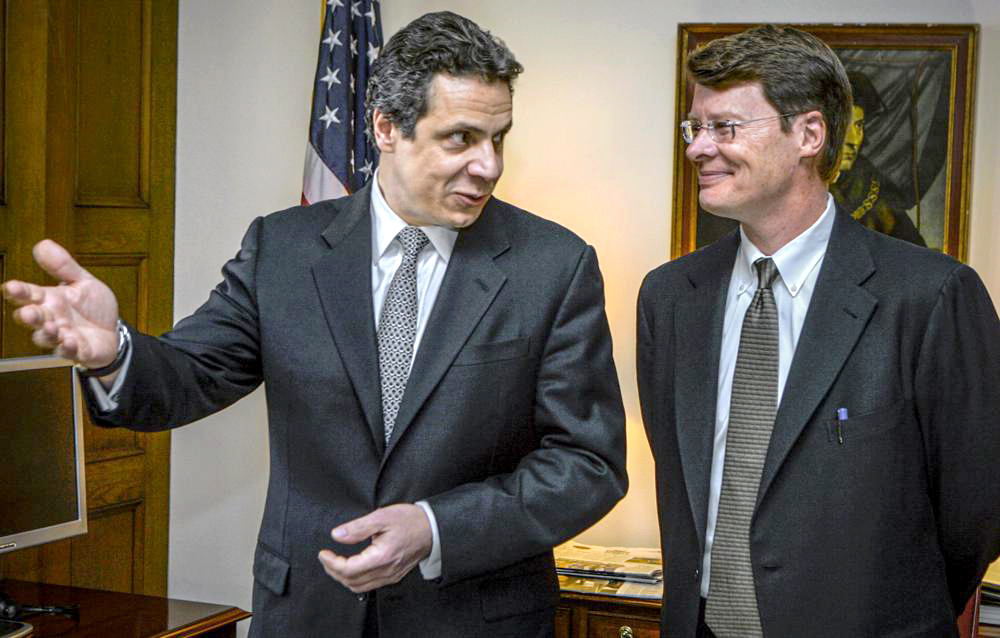By: Marina Villeneuve
Good government groups say New York’s ethics commission should investigate whether former Gov. Andrew Cuomo broke the law by accepting free help from a group of former aides who worked to defend him against sexual harassment allegations.
New York ethics law bans public officials from accepting gifts or services worth more than $15 from lobbyists and companies that do business with the state.
Violators can face fines of up to $25,000 or the possibility of criminal charges.
When Cuomo’s first accusers came forward, he turned to a team of outside advisers — former members of his administration — who provided the Democrat with strategic advice and public relations help.
Several of those ex-aides worked for companies that lobby the state or have had state contracts.
New York’s gift ban doesn’t apply to family members or friends, and Cuomo’s attorney, Jim McGuire, said simply seeking advice from longtime allies in a crisis breaks no law.
“Every elected official, every politician, every person has a kitchen cabinet they rely on,” McGuire said. “It’s called having friends.”
New York Public Interest Research Group Executive Director Blair Horner said ethics officials should investigate.
“If the governor’s getting free professional consulting in this capacity and he is an elected official, that should be prohibited under the law,” Horner said. “They’re giving free professional advice to the governor and normally they would charge.”
A spokesperson for New York’s Joint Commission on Public Ethics, which enforces the state rule, declined to comment.
Cuomo resigned in August several days after the state’s attorney general issued a report concluding he had sexually harassed 11 women.
The investigators who prepared that report interviewed several former Cuomo aides who had played a role in the governor’s defense and weren’t paid for their help.
They included three former Cuomo aides — Rich Bamberger, Josh Vlasto and Maggie Moran — who, at the time, worked for the public relations firm Kivvitt, which has received $26 million from state contracts and regularly lobbies the governor’s office and lawmakers.
Their services included things like helping Cuomo’s team develop a media strategy, interacting with reporters and disseminating documents to potentially undermine the governor’s first public accuser, Lindsay Boylan.
Vlasto and Moran told investigators that as the scandal grew, Cuomo did offer to pay them. Vlasto said he declined. Moran said Kivvitt declined because the firm doesn’t work “on the opposite side of victims.”
“The governor tried to negotiate with me and pay Kivvit $100,000 a month,” Moran testified. “He wanted Josh full-time. I said no. I told him we’d volunteer. I didn’t mean it.”
(AP)





